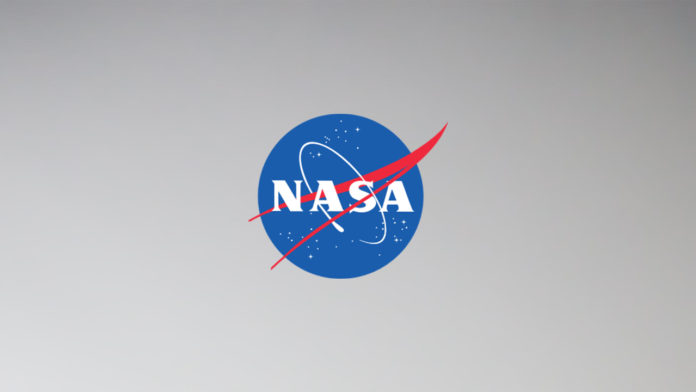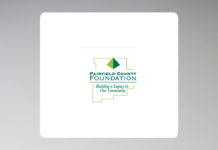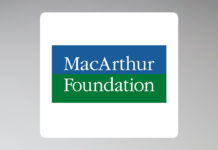Opportunities
For the convenience of students, post-doctoral fellows, young career researchers, and their mentors, this page contains a selection of opportunities. The list includes summer programs and scholarships for undergraduates and graduate students, post-doctoral fellowships, special programs for early career researchers, faculty members, and senior scientists. Some of these programs occur only at NASA centers, but others support students or scientists at universities. Some are funded through NASA’s Science Mission Directorate, but many are sponsored either by other directorates within NASA, the NASA Office of Education, or non-NASAorganizations. Programs that cater to more than one group are listed in both relevant sections. This page will continue to grow over the coming months. Please send information on other opportunities that can be included to help others.
Postdoctoral Opportunities
NAI Postdoctoral Fellowship Program: This program provides opportunities for Ph.D. scientists and engineers of unusual promise and ability to perform research on problems largely of their own choosing, yet compatible with the research interests of NASA and the member teams of the NASA Astrobiology Institute. Like the NPP, the NAI Postdoctoral Program is administered by Oak Ridge Associated Universities (ORAU). Note that the NAI does not participate in every application/award cycle, see https://npp.usra.edu/ for additional information about the program.
The NASA Postdoctoral Program (NPP): One to three year post-doctoral fellowships for highly talented national and international individuals to engage in research at NASA Centers, or at a NASA-affiliated research institution. There are also opportunities via this program to perform science administration work at NASA Headquarters. Although primarily for recent doctoral graduates, ‘senior’ NPP fellowships can also be awarded to researchers who have been active in their field for a substantial amount of time.
Hubble Fellowships: The Hubble Postdoctoral Fellowship Program supports outstanding postdoctoral scientists whose research is broadly related to NASA Cosmic Origins scientific goals as addressed by any of the missions in that program. The research supported by the Hubble Fellowship Program may be theoretical, observational, or instrumental. The fellowships are tenable at U.S. host institutions of the fellows’ choice, subject to a maximum of one new fellow per host institution per year. The duration of the fellowship is up to three years: an initial one-year appointment, and two annual renewals contingent on satisfactory performance and availability of NASA funds.
Sagan Fellowship Program: The Sagan Fellowship Program supports outstanding recent postdoctoral scientists to conduct independent research that is broadly related to the science goals of the NASA Exoplanet Exploration area. The primary goal of missions within this program is to discover and characterize planetary systems and Earth-like planets around nearby stars. Fellowship recipients receive financial support to conduct research at a host institution in the US for a period of up to three years (subject to annual review and availability of funds from NASA).
Einstein Fellowship: The Einstein Postdoctoral Fellowship program awards Fellowships to recent Ph.D.s in astronomy, physics, and related disciplines. Einstein Fellows hold their appointments at a Host Institution in the U.S. for research that is broadly related to the science goals of the NASA Physics of the Cosmos program. The proposed research may be observational, instrumental, theoretical, archival or study sources from these missions at other wavelengths. The Fellowship duration is three years (subject to review after the second year and to availability of funds from NASA).
Roman Fellowship: The Roman Technology Fellowship in Astrophysics (RTF) program provides early career researchers the opportunity to develop the skills necessary to lead astrophysics flight instruments/projects and become principal investigators (PIs) of future astrophysics missions; to develop innovative technologies that have the potential to enable major scientific breakthroughs; and to foster new talent by putting early-career instrument builders on a trajectory towards long-term positions. The Fellowship duration is one to five years (subject to a peer review process and availability of funds from NASA).
NASA has an annual call for National Space Biomedical Research Institute Postdoctoral Fellowships which can be found at http://solicitation.nasaprs.com/open by searching for NSBRI.
Graduate Opportunities
NASA Earth and Space Science Fellowship (NESSF) program: A program that supports graduate students in basic and applied research in Earth science and space science. Awards of $30,000 per year are made for up to three years. More information and application instructions can be found at http://solicitation.nasaprs.com/open by searching for NESSF.
NASA Space Technology Research Fellowships (NSTRF): U.S. citizen or permanent resident students that have applied to, have been admitted to, or are already enrolled in, a full-time Master’s or Doctoral degree program at accredited U.S. universities are eligible to apply. More information and application instructions can be found at http://solicitation.nasaprs.com/open by searching for NSTRF.
The National Consortium for Graduate Degrees for Minorities in Engineering and Science, Inc. Fellowship: GEM assists underrepresented minority students in obtaining M.S. degrees in engineering and Ph.D. degrees in engineering and the natural and physical sciences.
The National Space Grant College and Fellowship Project: The project contributes to the nation’s science enterprise by funding research, education, and public service projects through a national network of 52 university-based Space Grant consortia. The consortia fund graduate fellowships and undergraduate scholarships for students pursuing careers in science, mathematics, engineering and technology, or STEM, as well as curriculum enhancement and faculty development.
NASA Graduate Student Researchers Project: The project offers competitive fellowships to U.S. citizens who are pursuing graduate degrees at the Masters and Doctoral levels, at U. S. accredited colleges and universities in areas of science and engineering that support the NASA research and development mission. GSRP and other NASA Office of Education fellowship opportunities can be found via the NASA One Stop Shopping Initiative (OSSI) online application system at: http://intern.nasa.gov.
Undergraduate Opportunities
NASA’s Planetary Geology and Geophysics Undergraduate Research Program: Undergraduates majoring in geology or related fields take part in an 8-week summer internship program, in which qualified students get to work with a NASA-funded planetary scientist at the scientist’s home institution. In the past, sites have included NASA Ames Research Center, NASA’s Jet Propulsion Laboratory, the U.S.G.S. Astrogeology Branch in Flagstaff, Arizona, and many others.
Summer Research Experience for Undergraduates (REU) Program: A competitively selected program designed to support current sophomore and junior undergraduate students to work with scientists at the SETI Institute and at the nearby NASA Ames Research Center on projects spanning the field of astrobiology from microbiology to observational astronomy.
The Lunar and Planetary Science Summer Intern Program: The Lunar and Planetary Institute invites undergraduates with at least 50 semester hours of credit to experience cutting-edge research working one-on-one with a scientist at the LPI or at the NASA Johnson Space Center on a research project of current interest in lunar and planetary science.
















